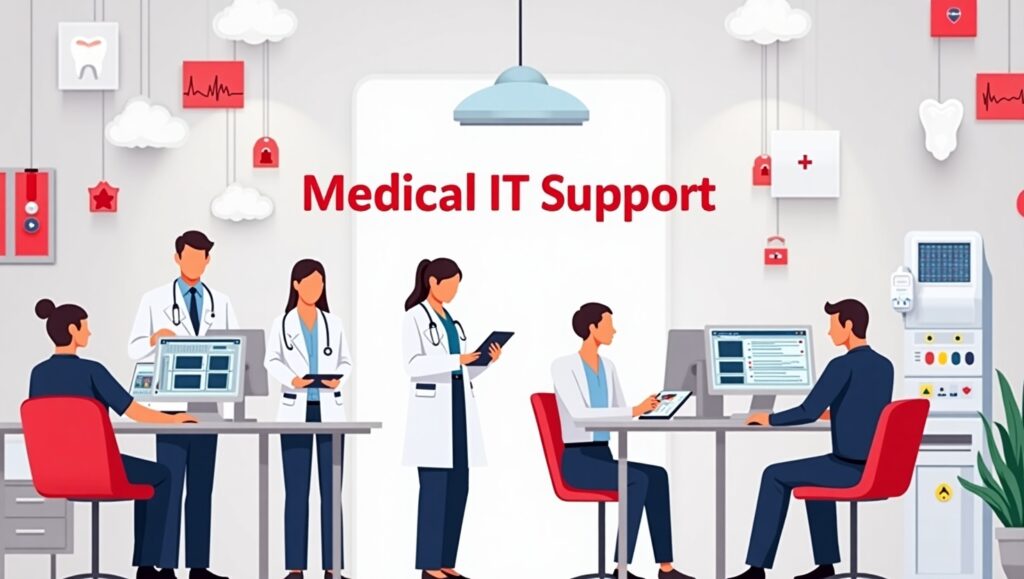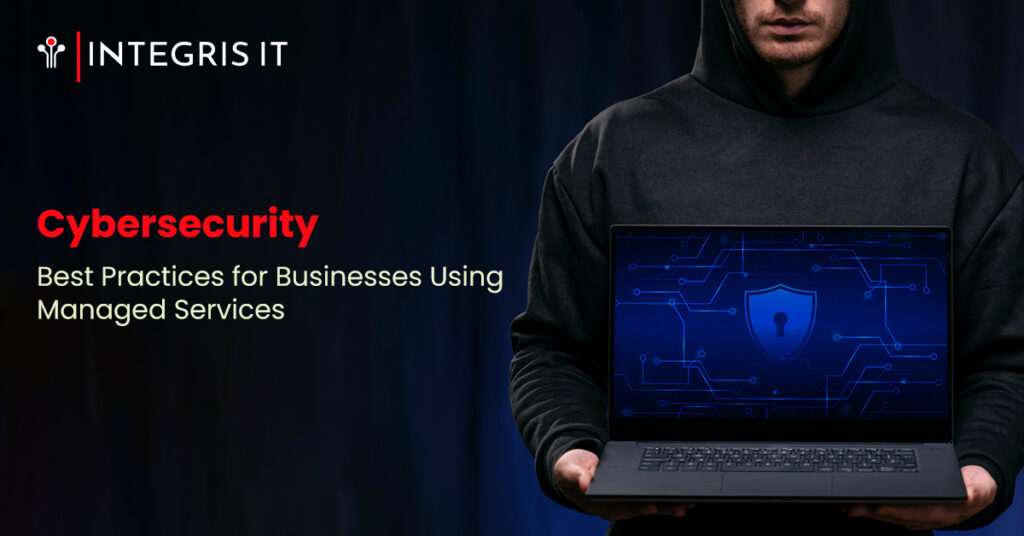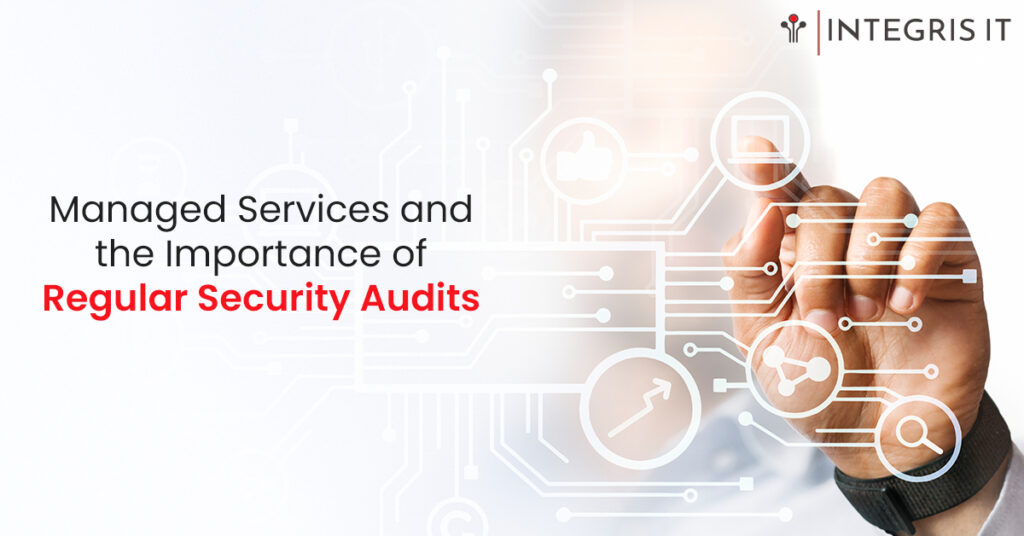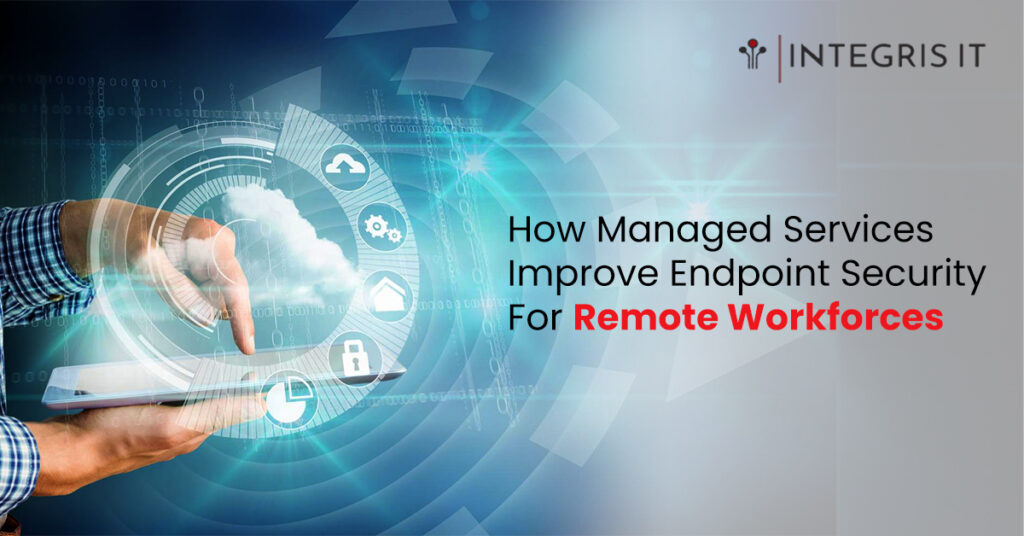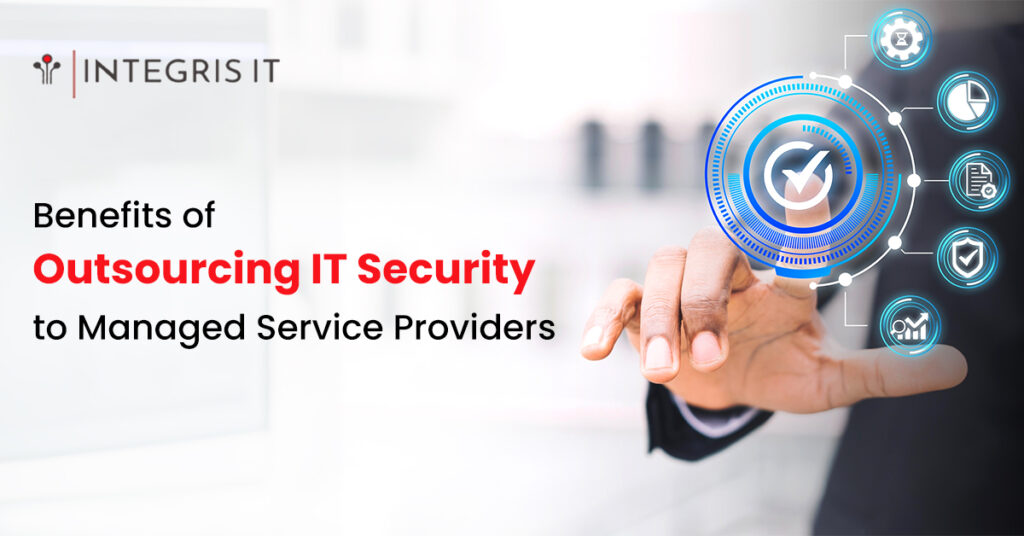The rise of telecommuting in today’s firms has brought new challenges. They must maintain good computer security, which was unheard of before. This move away from a normal office environment and toward telecommuting heightens the need for better data protection and cyber security measures. Managed IT services are one of the important ways to attend to these issues. Managed IT services secure the endpoints from these cyber threats. This maintenance keeps remote operations secure and effective. This blog explains the need for full cyber security and data protection. It shows how managed IT services improve security for remote workforces.
Improving Endpoint Security Using Managed IT Services
All-round Cybersecurity Solutions
Managed IT services provide many cybersecurity services. They are for endpoint devices. They include vulnerability management, continuous monitoring, and threat detection and response. Real-time threat detection means finding potential security threats. It uses advanced tools and algorithms. MSPs detect threats in real time. They use advanced tech, like AI and machine learning, to spot anomalies and likely security breaches early.
Another critical service provided by MSPs is vulnerability management. This means scanning systems often for vulnerabilities. Attackers could use these flaws against the customer. MSPs help keep the company’s IT secure. They find and fix vulnerabilities fast to avoid security issues. To react to this threat, continuous monitoring ensures endpoint devices are scanned constantly.
Privacy and Data Protection
Endpoint security’s big parts are data protection and privacy. This is especially true now that most workforces are remote. In most cases, individuals access and transfer sensitive information beyond the traditional office. Managed IT services have established a strong process. It protects sensitive data. This involves the encryption of data both in transit and at rest. Data encryption ensures that, even if it were intercepted, data could not be decrypted without an appropriate key.
In addition are the safe data storage procedures. Managed IT services do this by ensuring that the data is stored in secure, encrypted databases. They have fine access controls that prevent undesired access to information. Backups occur regularly to ensure that the restoration of data is possible in case of loss or corruption. Also, MSPs secure sensitive personal data with privacy policies and procedures. They follow the law, such as CCPA and GDPR.
Cybersecurity and Information Security Compliance
Companies that benefit from remote workers must ensure information security. They also must comply with cyber security laws. Managed IT services are very important. They help companies acquire and keep cyber security compliance. It involves implementing security policies and controls. They must meet legal and industry standards.
Audits and assessments check if an organization’s security practices follow the set standards. MSPs have to document many processes as records and reports. They do this to show stakeholders’ compliance with set rules. This helps them avoid potential lawsuits. By outsourcing cyber security to an MSP, organizations can handle the complexity of cyber security compliance. They will also be sure that their security practices will be aligned with the newest regulations.
Threat Detection and Response
Effective threat detection and response are vital components of endpoint security. Managed IT services to monitor endpoint devices. They look for any signs of malicious activity. They use efficient threat detection techniques and technology. This means using intrusion detection systems (IDS) and intrusion prevention systems (IPS). They identify and stop a threat at its start.
Advantages of Information Security
Strong cyber security procedures instil trust with partners and customers. This improves the company’s reputation. It also helps its customer relationships. But, only if the company is keen on protecting data and privacy. The current competitive market calls for trust, especially in the wake of widespread security events and data breaches.
Remote and outsourced IT support
This is essential for managed IT services. It’s especially true for businesses with remote workers. Managed service companies offer staff with 24/7 remote assistance on any technical problems they may run across. Managed service companies offer remote staff with technical support. It’s around the clock for fixing any technical problems. Support like this makes remote hardware repair, updating software, and troubleshooting easier. It also reduces downtime while sustaining productivity.
Backup to the cloud for remote workers
Your workforce may be scattered at the moment, but your IT staff and equipment doesn’t have to be. Protect end-user data without having to set up an appliance or configure local storage in every office location. Backing up from anywhere via just an Internet connection—yes, that includes WiFi, so you know even the data on those remote endpoints is covered—is the easiest way for cloud backup.
Benefits of Cybersecurity
There are many advantages. They come from using managed IT services to build strong cyber security. Among the main advantages is protection against cyberattacks that might result in damage to vital data and systems. Ransomware attacks, data breaches, and criminal activities can risk a company’s operations. Applying the latest security tech and procedures can reduce these concerns.
Another key benefit is increased compliance with regulatory requirements. From the view of managed IT services, this means the risk of non-compliance penalties goes down. They accomplish this by helping firms to comply with the law and industry standards. Cyber security services to a great extent, enhance resilience. Currently, businesses can better resist and recover from cyber-attacks. They can keep operating, reducing the impact of breaches.
The question that remains, therefore, is how cyber risk might be addressed.
The other key element in endpoint security for remote workforces is the management of cyber risk. The IT services help businesses find, assess, and reduce cyber risks. They do this through comprehensive risk management solutions. This would involve periodic risk assessments. They aim to understand the impact of different threats and vulnerabilities.
Conclusion
Managed IT services provide many cyber security services. They will protect the remote operations of businesses from various threats. These include threat detection and response, data protection, and information security compliance. Partnering with an MSP has other benefits as well. These include better regulatory compliance, increased resilience, and protection of key assets.
Also, outsourcing and remote IT support let you work from home safely and effectively. When a company buys managed IT services, it ensures that its tools have the resources to handle complex cyber security. The services also protect remote workers from ever-changing threats.
